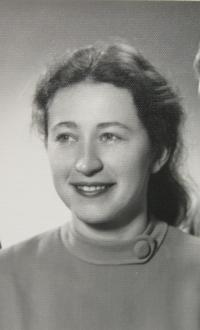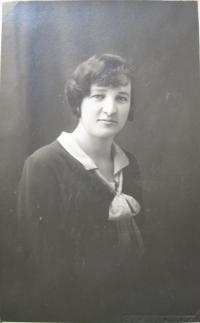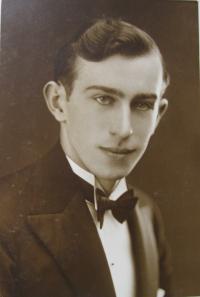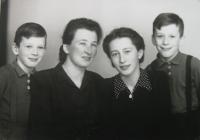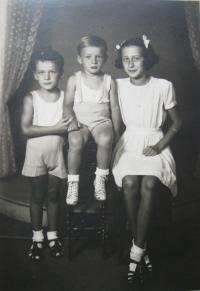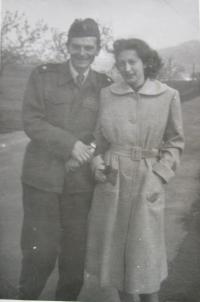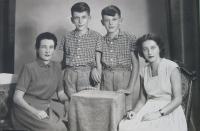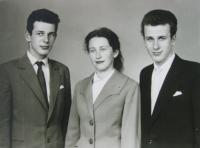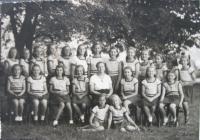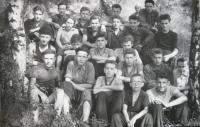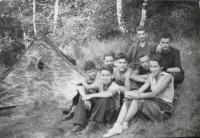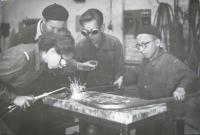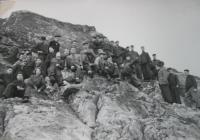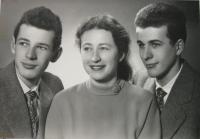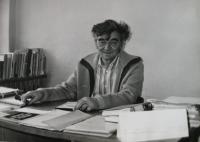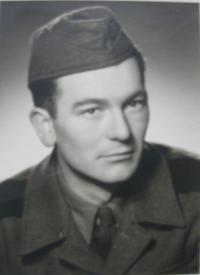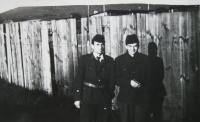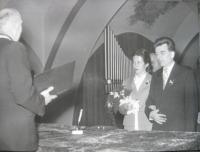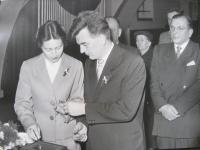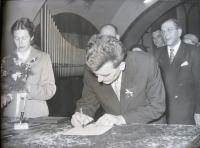My father and my husband were both marked by the prison

Download image
Milada Pabianová, née Tulačková, was born on 1 June 1936 as the oldest daughter of Ota Tulačka, a clerk at the Kdyně cotton mills who organised a network of border guides following the Communist coup in 1948; among others, the network facilitated the escape of Col. Alexander Hess, Ivana Tigridová, or president Beneš’s chancellor Jaromír Smutný. In September 1949 Milada’s father was arrested by State Security and in May 1950 the state court found him guilty of high treason and espionage, sending him to prison for life. Tulačka spent time in Pankrác, Valdice, Leopoldov, and Mírov. He was amnestied in 1964. In the meantime his family struggled along in bad conditions. They were expelled from their flat and were forced to sleep over in various nooks and crannies of friends and relatives. Milada learnt to be a locksmith by trade and she attended a secondary technical school of machinery for a few years. She had to end her studies prematurely and begin work to help her mother feed her young brothers. From 1955 until her retirement in 1991 she worked in the Kdyně Machine Works. She married Jaromír Pabian, who was also imprisoned for guiding people over the borders like her father.
